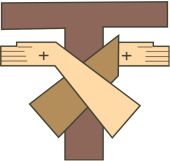Consider Page 6-7 of the Development and Peace document in your answer and the Compendium of Social Doctrine of the Church 255 & 349
255. The Old Testament presents God as the omnipotent Creator (cf. Gen 2:2; Job 38-41; Ps 104; Ps 147) who fashions man in his image and invites him to work the soil (cf. Gen 2:5-6), and cultivate and care for the garden of Eden in which he has placed him (cf. Gen 2:15). To the first human couple God entrusts the task of subduing the earth and exercising dominion over every living creature (cf. Gen 1:28). The dominion exercised by man over other living creatures, however, is not to be despotic or reckless; on the contrary he is to “cultivate and care for” (Gen 2:15) the goods created by God. These goods were not created by man, but have been received by him as a precious gift that the Creator has placed under his responsibility. Cultivating the earth means not abandoning it to itself; exercising dominion over it means taking care of it, as a wise king cares for his people and a shepherd his sheep.
349. The Church's social doctrine, while recognizing the market as an irreplaceable instrument for regulating the inner workings of the economic system, points out the need for it to be firmly rooted in its ethical objectives, which ensure and at the same time suitably circumscribe the space within which it can operate autonomously.[729] The idea that the market alone can be entrusted with the task of supplying every category of goods cannot be shared, because such an idea is based on a reductionist vision of the person and society.[730] Faced with the concrete “risk of an ‘idolatry' of the market”, the Church's social doctrine underlines its limits, which are easily seen in its proven inability to satisfy important human needs, which require goods that “by their nature are not and cannot be mere commodities”,[731] goods that cannot be bought and sold according to the rule of the “exchange of equivalents” and the logic of contracts, which are typical of the market.

